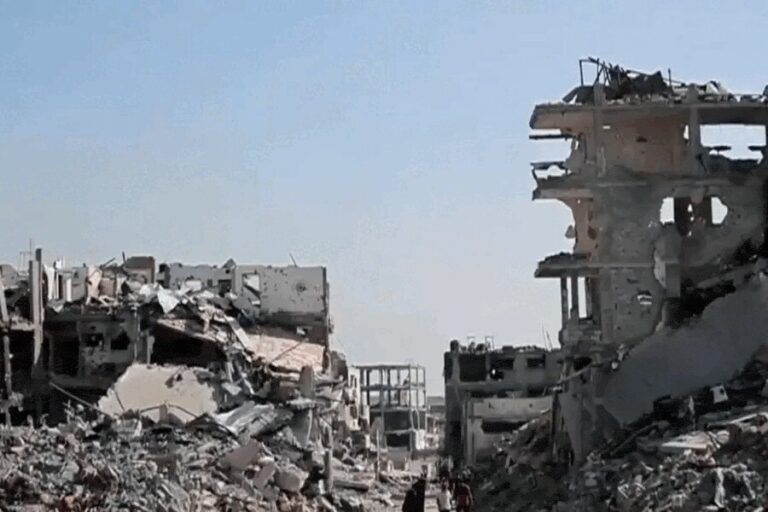Israel and Hamas have reached a preliminary agreement for a ceasefire and hostage exchange deal in Gaza, sources close to the negotiations revealed. The draft deal, which could be finalized this week, represents a significant step in de-escalating the ongoing conflict. If the agreement is approved, the first steps toward implementation may begin as early as this weekend.
U.S., Arab, and Israeli officials have confirmed that the talks, held in Doha over the past few weeks, are nearing their conclusion. The deal comes after intensive mediation efforts led by U.S. officials and key regional players, including Qatar and Egypt. The Biden administration, nearing the end of its term, has worked tirelessly to facilitate the agreement, with President-elect Donald Trump’s incoming administration set to oversee its execution.
The agreement outlines a three-phase approach designed to address immediate humanitarian needs, facilitate the release of hostages and prisoners, and establish a framework for Gaza’s reconstruction and governance. In the first phase, a 42-day ceasefire would be implemented, during which Hamas would release 33 women and children hostages, as well as hostages over the age of 50. In exchange, Israel would free 30 Palestinian women and children prisoners for each hostage released. Aid organizations, including the United Nations, would be allowed to resume operations in Gaza during the ceasefire. Humanitarian assistance would focus on restoring essential infrastructure such as water, electricity, and sewage systems. Negotiations on subsequent phases of the agreement would continue during this period.
The second phase would involve the release of all Israeli male hostages and the withdrawal of Israeli Defense Forces (IDF) from Gaza. The third phase, negotiated concurrently, would include the exchange of deceased hostages and prisoners, the opening of Gaza’s borders, and the continuation of reconstruction efforts.
Despite progress, several issues have complicated negotiations. Both sides have struggled to agree on the specifics of the prisoner and hostage exchanges, the timeline for IDF withdrawal, and the permanence of the ceasefire. Hamas and other groups in Gaza are holding around 100 hostages captured during the October 7, 2023, attack, which resulted in 1,200 deaths in Israel. Meanwhile, Israel’s military response has devastated Gaza, with over 46,000 Palestinians reported dead and the majority of the population displaced.
U.S. National Security Adviser Jake Sullivan acknowledged the difficulties but expressed optimism. “Pressure is building for Hamas to say yes, and Israel has achieved many of its military objectives,” Sullivan said. “The question now is whether we can seize this moment and make it happen.” Israeli officials echoed this sentiment, noting progress in all components of the agreement. However, they remain cautious, given past failures to finalize similar deals.
President Biden has worked to secure the agreement as a potential capstone to his presidency. His administration has also developed a post-withdrawal governance plan for Gaza, though its implementation will depend on the Trump administration. Trump’s special Middle East envoy, Steve Witkoff, has been actively involved in the negotiations, coordinating with Israeli Prime Minister Benjamin Netanyahu and other key stakeholders.
If successful, the ceasefire deal could pave the way for broader efforts to address the longstanding conflict between Israel and Hamas. However, its ultimate success will hinge on the willingness of both sides to adhere to the agreement and work collaboratively in future phases. The tentative agreement offers a rare moment of hope in a region long plagued by violence and suffering. For the millions affected, particularly those displaced in Gaza, the deal represents a chance for much-needed relief and the possibility of a more stable future.
As the world watches, the next few days will be critical in determining whether this agreement can be finalized and serve as a turning point in one of the world’s most intractable conflicts.
